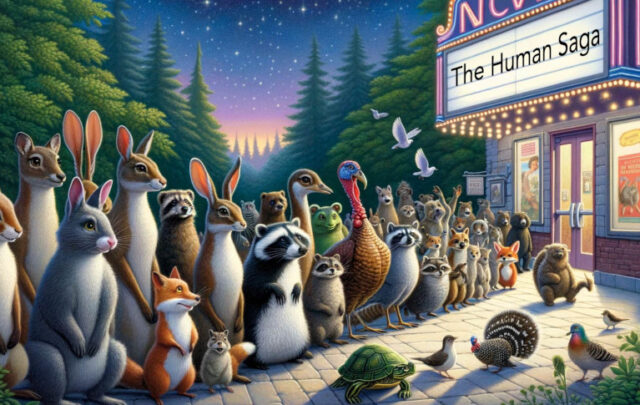 . Fabulous feast of apocalypse storytelling set in Thailand. Peak oil, climate change, genetically modified seeds gone bad, new plant diseases, new plagues. Add to that, interesting mutant technology that produces giant elephant hybrids for factory work and the highly erotic android of the title. Plus assortment of low tech energy sources filling the gap where fossil fuel power once lubricated commerce.
. Fabulous feast of apocalypse storytelling set in Thailand. Peak oil, climate change, genetically modified seeds gone bad, new plant diseases, new plagues. Add to that, interesting mutant technology that produces giant elephant hybrids for factory work and the highly erotic android of the title. Plus assortment of low tech energy sources filling the gap where fossil fuel power once lubricated commerce.
I have to hand it to Mr. Bacigalupi for his skillful use of Thai culture. He preserved my favorite parts of my home country, except of course the sex trade. But then it has become obligatory to feature the sex trade in books set in Bangkok, so I’m not holding it against him. (Where you have farangs [Westerners] in Bangkok you must have the sex trade. It is as much a reflection on white men as it is a global fascination with this infamy of Thailand.) In fact he is a moralist about it, using the degrading forces of the industry to drive the plot.
He also juggled the complexity of Thai politics, our obsession with ghosts and the famous Thai smile to good effect, plus I greatly appreciated his native-like respect for the Thai royal family by allowing royal smarts to play a crucial part in the survival game. Combined with the subplots of the various characters each vying to further their agenda, I felt this to be an entirely accurate description of how the world of trade and commerce works today, given the corruption, the greed, the tenuous alliances between competing interests and the interplay of nationalistic policies versus globalization.
If I have any complaints about this tale it is that the author presents us with a world that has learned nearly nothing from the misuse of resources and the trashing of the planet. Technology evolved, but the human psyche did not. Even the environmental movement, that preserved enough of the natural resources to give the Thais the edge in this futuristic Bangkok, has succumbed to violence and repressive tactics. As the book opens the pressure to begin anew to exploit this pocket of surviving riches is depressingly familiar.
And there will be the inevitable complaint that the women characters are again given short shrift. A hundred and fifty years or so has not improved the gender imbalance much. Because the primary female character is an android—a possession—we are witnessing a treatment of a woman that is decidedly regressive. But like Steig Larson, Bacigalupi desperately wants his female characters to overcome this imbalance. And the character of the Wind-up Girl is fascinating in her visceral details much as Larson’s strange heroine was. The only other woman in the picture could well have been a man, but she is given a satisfying trajectory that also speaks to the gender imbalance.
The narrative toys with our loyalties and liberal allegiances in an intriguing way. We are made to identify with the motivations of people we are inclined to point to as part of the problem, but these characters are not evil just driven. Their motives are possibly as much for the good of humanity as for profit. The book also showcases the importance of preserving genetic diversity in a world where food producing, “calorie” companies replace the oil companies of the previous “expansion period”.
It is a gritty book full of bodily injuries and an acceptance that some humans will be expendable. So not for the faint of heart. But there is an underlying humanity that brings the story to a satisfying conclusion quite in keeping with the exotic setting that he went to great pains to set up in the first third of the book. Bacigalupi gives us a richness of story and an impartiality that carries it out of its genre. It is worth reading because of the quality of the writing and that is rare in the apocalypse camp.





